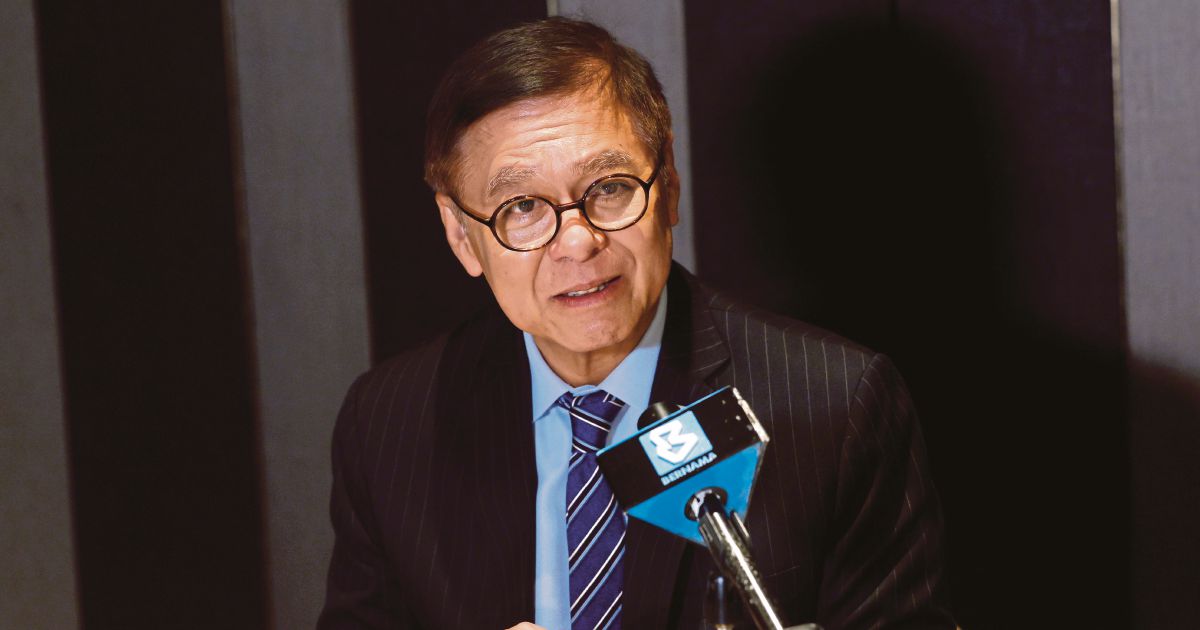KUALA LUMPUR: THE peace agreement between Thailand and Cambodia is not the ultimate goal for Bangkok, which is seeking to establish a clear timeline and implementation plan to ensure lasting peace between the two neighbours.
Thai Foreign Minister Sihasak Phuangketkeow said Bangkok had been working closely with Phnom Penh to advance efforts towards a peaceful resolution of the situation.
In an interview with the New Straits Times ahead of the 47th Asean Summit, Sihasak said several key issues must be addressed to secure long-term peace.
“First, we need to de-escalate border tensions. This means the withdrawal of troops and heavy weaponry.
“Second, we must intensify demining efforts. For Thailand, this is particularly important as many of our troops have been severely injured.
“We also need to combat trans-national crime, which is now recognised as a problem of immense magnitude, not only for our region, but beyond.
“Finally, we have to strengthen confidence-building measures. Addressing these issues will pave the way for the restoration of full ties between our two countries.”
Sihasak expressed appreciation for Malaysia’s role as Asean chair, as well as for the United States’ involvement in the four-party consultations in Kuala Lumpur and New York aimed at securing peace.
However, he said, the ultimate solution depended on the willingness of both countries to resolve matters directly.
“Their help has certainly contributed. But progress has been achieved because both sides are earnestly and seriously addressing the issues.
“We hope that if everything falls into place on the 26th (tomorrow), we can sign an agreement in the presence of US President Donald Trump and Prime Minister Datuk Seri Anwar Ibrahim. And we hope to open it up to other Asean members as well.”
Sihasak said discussions had taken place at the policy level, including meetings between military representatives, to finalise a plan of action and establish an implementation timeline.
MALAYSIA-THAILAND RELATIONS
Sihasak, who was appointed foreign minister just over a month ago but has long served in Thailand’s diplomatic corps, said several bilateral issues had persisted for decades.
As neighbouring countries sharing a common border, he said Malaysia and Thailand shared many concerns, including border development and connectivity.
“There’s a lot we can do to enhance the flow of trade, people and commerce between our countries. Greater connectivity will not only benefit Malaysia and Thailand, but also strengthen links with regional economies, including China.
“Of course, there’s the situation in the south. Malaysia has been assisting us as a facilitator and we deeply appreciate its continued support.”
SCAM OPERATIONS AND TRANSNATIONAL CRIME
Recent reports have suggested that during the Asean Summit, Thailand should take the lead in tackling the surge of regional scam operations.
Sihasak said such criminal activities had proliferated along border areas.
“While Thailand must take the lead, it cannot act alone. These transnational scams affect not only our region, but countries beyond it.
“At this summit, it will be an important topic of discussion and we must work together within Asean and with our partners.”
He urged Asean member states to seize the opportunity of the leaders’ meeting to take concrete action instead of merely discussing the problem.
STRENGTHENING ASEAN COORDINATION
Sihasak said he looked forward to the meeting between Asean’s foreign and economic ministers to ensure regional issues were not treated in isolation.
“Asean has three pillars and many issues should not be compartmentalised within a single pillar because they are cross-cutting in nature.
“For instance, addressing challenges in the multilateral trading system requires political engagement with key partners to maintain a rules-based international order.
“Even matters under the socio-cultural pillar, such as the role of AICHR (Asean Intergovernmental Commission on Human Rights), often involve political considerations. Therefore, stronger coordination between all three pillars is crucial.”
© New Straits Times Press (M) Bhd






![BTH: Malaysian traffic, car sales, TB clusters, & BUDI95 savings ac[WATCH]](https://prwire.my/wp-content/uploads/2026/02/BTH-Malaysian-traffic-car-sales-TB-clusters-amp-BUDI95-savings-300x158.jpg)